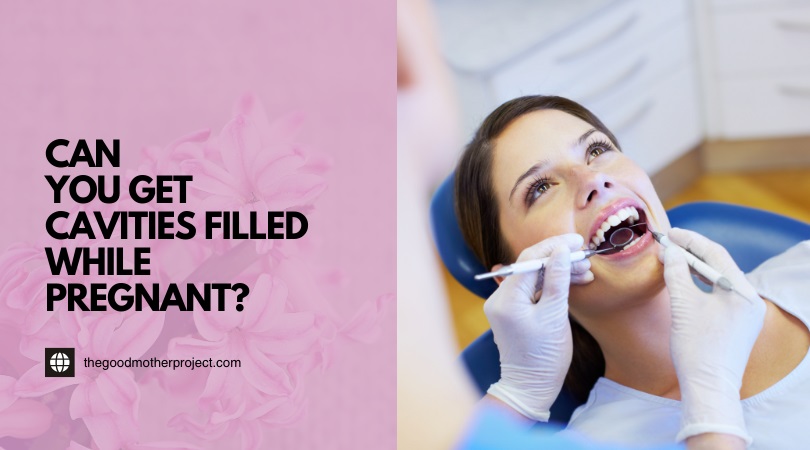Last Updated on January 6, 2025
Yes, you can get cavities filled while pregnant. Most dental treatments, including fillings, are safe during pregnancy.
Pregnancy often brings unique challenges, including oral health concerns. Hormonal changes can increase the risk of gum disease and cavities. Regular dental check-ups are essential during this time. Many women worry about the safety of dental procedures while pregnant. Understanding what treatments are safe can ease these concerns.
Dentists prioritize the health of both mother and baby. They often recommend treatment for cavities to prevent further complications. It’s crucial to discuss any dental issues with your healthcare provider. Taking care of your teeth during pregnancy supports overall well-being for you and your child. Prioritize your oral health for a healthier pregnancy experience.
Pregnancy And Dental Health: The Connection
Pregnancy brings many changes to a woman’s body. These changes can affect dental health. It’s essential to understand this connection. Proper dental care is vital for both the mother and baby.
Hormonal Changes And Oral Health
Hormonal fluctuations during pregnancy influence oral health. Increased hormones can lead to gum issues. Women may experience:
- Pregnancy gingivitis: Swollen and bleeding gums.
- Increased plaque buildup: More bacteria can gather on teeth.
- Increased risk of cavities: Changes in saliva and diet may contribute.
Maintaining regular dental check-ups is essential. Dentists can help manage these changes effectively.
Common Dental Issues During Pregnancy
Pregnant women may face several dental problems. Here are some common issues:
- Cavities: Increased sugar cravings can lead to tooth decay.
- Tooth sensitivity: Hormonal changes may cause heightened sensitivity.
- Dry mouth: Hormonal shifts can decrease saliva production.
- Oral tumors: Benign growths may develop on gums.
It is crucial to address these issues promptly. Regular dental visits help prevent complications.
| Dental Issues | Symptoms |
|---|---|
| Cavities | Pain, visible holes in teeth |
| Pregnancy gingivitis | Red, swollen gums that bleed |
| Tooth sensitivity | Pain when eating hot or cold foods |
| Dry mouth | Feeling of thirst, difficulty swallowing |
Understanding these issues helps in taking preventive measures. Proper dental care is important for a healthy pregnancy.
Filling Cavities During Pregnancy: Safety And Timing
Pregnancy brings many changes. Dental health is crucial during this time. Many wonder about the safety of filling cavities. Understanding the best timing and safety measures can help.
Best Trimester For Dental Work
The best time for dental work is during the second trimester. This period offers several advantages:
- Lower risk of miscarriage
- Reduced nausea and fatigue
- Fetus is more developed
Although dental work is safe in the second trimester, emergencies can arise. Consult your dentist as needed. First and third trimesters may pose additional risks.
Anesthesia And X-rays: What’s Safe?
Dental procedures often require anesthesia. Local anesthesia is generally safe during pregnancy. It numbs the area without affecting the baby.
X-rays can also be necessary. Here are some safety measures:
| Procedure | Safety Level | Notes |
|---|---|---|
| Local Anesthesia | Safe | Minimal effect on the fetus |
| X-Rays | Safe with precautions | Lead apron used to shield abdomen |
| General Anesthesia | Avoid if possible | Higher risks involved |
Always inform your dentist about your pregnancy. They can adjust treatments as needed. Your health and your baby’s health come first.
Tips For Safe Dentistry When Expecting
Pregnancy brings many changes. Dental care is important during this time. Safe dentistry ensures the health of both mother and baby. Here are key tips to follow.
Choosing The Right Dentist
Select a dentist who understands pregnancy. They should know how to handle dental care for expecting mothers. Look for these qualities:
- Experience: Choose a dentist with experience in treating pregnant women.
- Communication: They should explain procedures clearly.
- Comfort: A friendly environment helps reduce anxiety.
Ask friends or family for recommendations. Check online reviews for more insights.
Preventive Dental Care At Home
- Brush: Brush your teeth twice daily with fluoride toothpaste.
- Floss: Floss daily to remove plaque between teeth.
- Rinse: Use an antibacterial mouthwash to reduce bacteria.
- Diet: Eat a balanced diet rich in calcium and vitamins.
- Hydrate: Drink plenty of water throughout the day.
Regular dental check-ups during pregnancy are essential. They help catch issues early and maintain good oral health.
Frequently Asked Questions
Can Pregnant Women Get Dental Work Done?
Yes, dental work, including cavity fillings, is safe during pregnancy, especially in the second trimester.
What Dental Treatments Are Safe During Pregnancy?
Routine dental treatments like cleanings and fillings are safe. Avoid elective procedures in the first trimester.
Is Anesthesia Safe For Pregnant Women?
Local anesthesia is generally safe during pregnancy. Inform your dentist about your condition before any procedure.
Can Cavities Affect Pregnancy?
Untreated cavities can lead to infections, which may pose risks to both the mother and baby’s health.
Should I Inform My Dentist I’m Pregnant?
Yes, always inform your dentist about your pregnancy. They can adjust treatments based on your specific needs.
Conclusion
Pregnancy brings unique challenges, including dental care. Getting cavities filled during pregnancy is generally safe. Consult your dentist for personalized advice. Prioritize oral health for both you and your baby. Regular check-ups can prevent complications and ensure a healthy smile.








